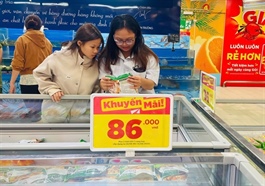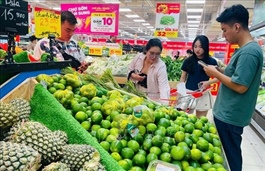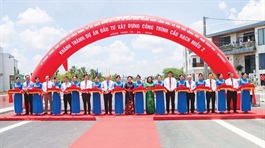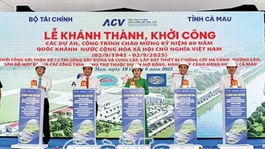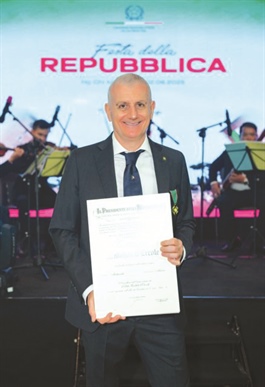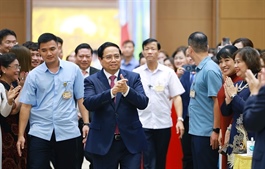Intellectual property emerges as crucial shield for Vietnamese businesses
Intellectual property emerges as crucial shield for Vietnamese businesses
According to international studies, the rate of IP violations in Việt Nam remains high compared to many countries in the region.
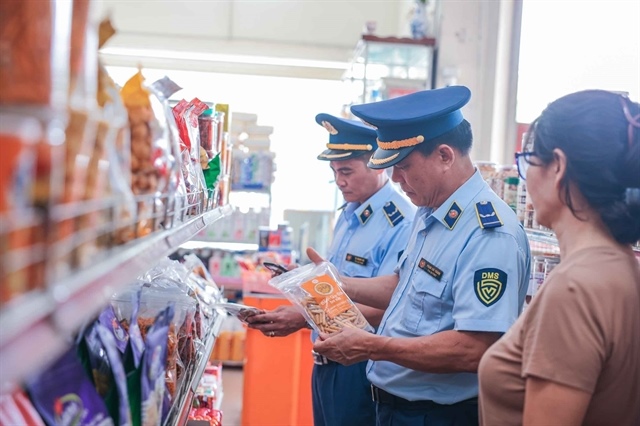
Market management forces in Lào Cai Province inspect products from household businesses in the locality. — VNA/VNS Photo Hoàng Hiếu |
Intellectual property (IP) protection is increasingly being recognised as a vital safeguard for Vietnamese enterprises striving to maintain competitiveness and promote innovation in a rapidly evolving global market, experts have said.
Vice Chairman of the Vietnam Chamber of Commerce and Industry (VCCI) Võ Tân Thànhsaid that despite Việt Nam having over 700,000 registered trademarks, IP violations remain widespread.
Critical gaps in IP protection framework
During a recent forum in HCM City, Thành said although the country has historically benefitted from abundant resources and low-cost labour, these are no longer viable long-term advantages.
Việt Nam must shift to a growth model driven by innovation. Both Resolution 57-NQ/TW and Resolution 68-NQ/TW stress that innovation is the new engine of growth, and the legal foundation for IP protection must be prioritised for improvement, he said.
Over the past decade, Việt Namhas taken notable steps to enhance its legal framework for IP rights. Participation in the World Trade Organization and a series of next-generation free trade agreements, including the CPTPP, EVFTA and RCEP, has compelled the country to align with higher international standards.
Despite progress, the country's IP legal framework still contains many significant loopholes, according to Thành.
He cited statistics from the Intellectual Property Office of Việt Namshowing that in 2024, there were more than 2,000 cases of IP infringement, with the value of counterfeit or pirated goods reaching into the hundreds of billions of đồng.
In the first half of 2025, authorities uncovered more than 3,270 cases of IP infringement, resulting in damages worth thousands of billions of đồng and causing significant harm to brand reputations.
In Việt Nam, both small businesses and major brands are being blatantly counterfeited, Thành noted.
According to international studies, the rate of IP violations in Việt Nam remains high compared to many countries in the region. He warned that this causes economic damage and seriously impacts the nation's reputation, investment climate and integration into the global economy.
Lawyer Mai Thị Thảo, deputy director of TAT Law Firm, said many companies believe that once a trademark is registered, it is automatically protected by law. But in reality, case after case shows that having protection does not necessarily mean being protected.
Thảo said at the conference that her firm is currently handling numerous infringement cases that demonstrate the limitations of the current system. Without a flexible appraisal mechanism and a robust, specialised IP court, she warned, even major national brands can suffer significant damage in their own domestic market.
"Brand protection is vital protection,” Thảo said. “You cannot just promote a brand, you must have a legal strategy running in parallel.”
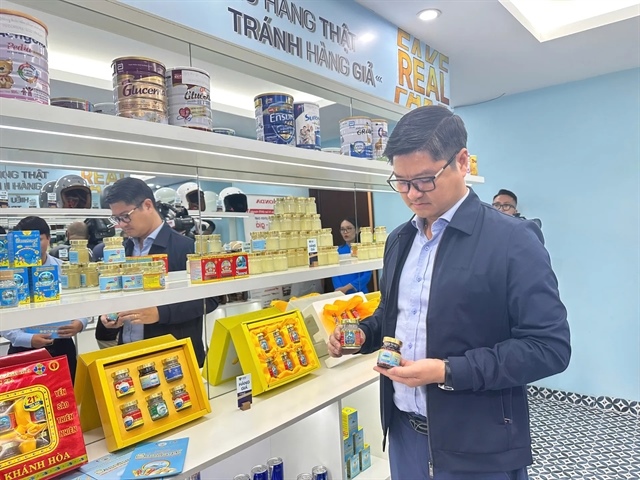
Market management forces in Lào Cai Province inspect products from household businesses in the locality. — VNA/VNS Photo Hoàng Hiếu |
Firms fighting against counterfeit goods
During the event, Lê Thị Đông Phương, deputy director of Khanh Hoa Salanganes Nest Soft Drink JSC's HCM City branch, raised concerns about the widespread sale of fake versions of the company's products.
According to Phương, counterfeit Salanganes Nest goods are often sold at drastically low prices, distorting the value of authentic products and infiltrating even rural markets, where consumers may lack access to accurate information or product verification tools.
In response, the company has taken a range of anti-counterfeiting measures, including the use of QR codes for product traceability, anti-counterfeit stamps and exclusive packaging for online sales. It is also working closely with local authorities to crack down on illegal producers.
Despite these efforts, Phương noted that many customer complaints about fake products remain unresolved. These counterfeit items are not just damaging the company's reputation, they also pose a real threat to consumer health, she said.
The deputy director emphasised the urgent need for stronger measures to combat IP violations and counterfeit goods.
“Protecting the intellectual property of enterprises is also protecting the strength and competitiveness of the country, while preserving the spirit of creativity and innovation of the Vietnamese people,” she said.
Phương called on authorities to enhance the legal framework with clearer regulations and stricter penalties for violations. She also urged greater oversight, particularly in the fast-growing digital marketplace.
Among the key recommendations are the development of technologies to identify sellers on e-commerce platforms, verification of legal and tax information, and the application of artificial intelligence to detect and warn against counterfeit and fake goods.
Additionally, she suggested reviewing and issuing national product standards to better protect consumers and legitimate businesses.
Bông Hoa Việt from Binh Minh Plastics JSC outlined the lack of a clear legal framework as a major obstacle in the fight against counterfeit goods.
“If a long established company like ours still finds it difficult to deal with counterfeiting, the situation is even more precarious for small and medium-sized enterprises or start-ups," Việt said.
He called for the swift completion and activation of a dedicated Intellectual Property Court system, staffed by a team of highly qualified and specialised judges.
In addition, he stressed the importance of issuing clear standards for calculating non-material damages in IP violations, particularly damage to brand reputation, which he argued can be more devastating than financial losses.
- 08:20 04/09/2025








